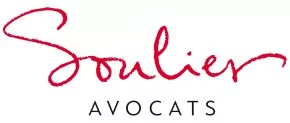The 2022 Rectifying Finance Law of August 16, 2022 provides for social measures to improve purchasing power that the employer can take advantage of.
These measures include, but are not limited to, the new value-sharing bonus, more flexibility on professional expenses, the buyback of RTT days and new provisions to support employee savings.
Article authored in collaboration with Matthieu Blaschczyk
Overview of these new measures.
The value-sharing bonus (Prime de Partage de la Valeur or "PPV")
This bonus is an optional device that allows employers to pay to all their employees (or to those whose annual remuneration is lower than an amount determined by the employer) a bonus of up to 3,000 euros (up to 6,000 euros if the company has put in place an incentive agreement).
This bonus, which replaces the exceptional purchasing power bonus (Prime Exceptionnelle de Pouvoir d'Achat or "PEPA") is exempt from employer and employee social security contributions but employees will have to pay the so-called general social contribution (Contribution Sociale Généralisé or "CSG"), social debt repayment contribution (Remboursement de la Dette Sociale or "CSG") and income tax on the PPV. On the employer's side, only companies with 250 employees or more will be subject to the flat rate contribution.
This bonus can be paid since July 1, 2022 and can be renewed for the following calendar years. When the bonus is paid between July 1, 2022 and December 31, 2023 to employees whose remuneration is less than 60,442.20 euros (i.e., three times the annual minimum wage), the exemption applies to the flat rate contribution, CSG, CRDS and income tax. However, from 2024 onwards and regardless of the employee's level of remuneration, the PPV will be subject to CSG, CRDS and income tax.
In practice, the company may implement the PPV through a unilateral decision of the employer or negotiate it within the framework of the mandatory annual negotiations, but must make sure that the PPV does not replace (i) any element of remuneration paid up until now, nor (ii) any salary increase or bonus provided for by a company-level agreement, the employment contract or the practices in force within the company.
The preferential regime (social and tax exemption) will only be granted to companies that scrupulously meet the conditions governing the grant of the PPV. The content of the unilateral decision of the employer or the agreement must, therefore, demonstrate that the legal conditions for eligibility have been met.
More flexibility on professional expenses
The 2022 Rectifying Finance Law increased the tax exemption thresholds for various optional bonuses related to expenses incurred by employees for travel. These bonuses are also exempt from social security contributions, subject to some limitations.
These schemes, or the upgrading of those already in force within the company, enable employees to benefit from additional remuneration with social and tax exemptions.
The transport bonus
This bonus allows employers to cover all or part of the fuel costs incurred by employees who are forced to use their personal vehicle for their home-to-work travels.
Exceptionally, for the years 2022 and 2023, the 2022 Rectifying Finance Law allows this possible coverage of fuel costs for employees who use their vehicle to get to work, without the latter having to provide evidence that they cannot use public transportation.
The sums paid by the employer to its employees to cover the fuel costs are, in principle, exempt from income tax, up to a limit of 200 euros per year and per employee, and up to a limit of 500 euros per year and per employee for the cost of powering an electric, plug-in hybrid or hydrogen vehicle. For the years 2022 and 2023, these two ceilings are raised by an additional tax-free amount of 200 euros.
As an exception, for 2022 and 2023, employees will be able to combine the transport bonus with the bonus paid by employers for the coverage of public transport subscriptions.
The "sustainable mobility" package
This scheme allows employers to cover all or part of the costs incurred by employees who use sustainable means of transportation for their home-to-work travels. This package covers bicycles, carpooling (driver or passenger) and public transportation.
The assumption by the employer of the "sustainable mobility" package costs is in principle exempt from income tax, social security contributions, CSG and CRDS up to 500 euros per year. This exemption ceiling is also increased by an additional 200 euros for the years 2022 and 2023 (i.e., an exemption ceiling of 700 euros).
It is also possible to combine this package with the employer's coverage of public transport subscriptions.
Meal vouchers (tickets-restaurant)
The social and tax exemption ceilings for meal vouchers have been raised and the use of meal vouchers has been made more flexible.
Jointly financed by the employer and the employee, these vouchers benefit from a favorable social treatment since the employer's contribution to the financing of the acquisition of meal vouchers is exempt from tax and social security contributions provided that it is between 50 and 60% of the value of the voucher and does not exceed the maximum exemption ceiling for the employer's share.
The 2022 Rectifying Finance Law raised the maximum tax and social security exemption ceiling to 5.92 euros instead of 5.69 euro per meal voucher.
The allocation of these meal vouchers, which is an optional device for companies, has become widespread for a long time but until now employees could only use them to pay for a meal or prepared foods. The 2022 Rectifying Finance Law made their use more flexible as employees can now use these vouchers to pay for any food product (whether directly consumable or not). In addition, the daily cap on the use of meal vouchers by employees has been raised to 25 euros.
The allocation of meal vouchers may be decided upon by a unilateral decision of the employer or pursuant to a collective agreement.
Flat-rate meal allowances
Flat-rate meal allowances allow employers to reimburse additional meal expenses incurred by their employees. These allowances are deemed to be used in accordance with their purpose and are exempt from social security contribution, without supporting documents, when they do not exceed some limitations (provided that the professional nature of the meal can be justified).
The 2022 Rectifying Finance Law provides for an exceptional increase in the exemption ceilings for lump-sum meal allowances, effective as of September 1, 2022, as follows:
- employee on business trip, forced to eat his/her meal in a restaurant: 20.20 euros;
- employee on business trip who cannot justify the need to eat his/her meal in a restaurant: 9.90 euros;
- employee forced to eat his/her meal at his/her place of work: 7.10 euros.
Buyback of RTT days1
This scheme enables employees to obtain:
- the payment of additional remuneration with a favorable social regime (reduction in employee social security contributions and exemption from income tax, flat-rate employer's deduction for companies with less than 20 employees);
- in return for the waiver by the employee of full or half RTT days that he/she has earned under an agreement for the reduction of working hours entered into prior to August 20, 2008, or under an arrangement for organizing working hours provided for in Articles L.3121-41 et seq. of the French Labor Code (counting of overtime hours over a period longer than one week).
The effective implementation of this scheme requires the consent of the employer and the employee.
Under this scheme, the employer will pay additional remuneration under exceptional social and tax conditions similar to those applicable to overtime (reduction of employee social security contributions, subject to some limitation, and income tax exemption up to 7,500 euros per year). For his/her part, the employee will waive his/her full or half RTT days earned under a working time arrangement implemented pursuant to the applicable collective bargaining agreement.
This scheme pre-supposes not only a sustained level activity of the company and the relevant employees, but also a proper follow-up of the RTT days waived thereunder. The scheme is adopted on a temporary basis and applies to full and half RTT days earned for periods after January 1, 2022 and until December 31, 2025.
In addition, it may be useful to conclude an agreement, in particular in the framework of the mandatory annual negotiations, in order to specify
- The maximum number of RTT days that can be bought-back;
- The applicable rate of salary increases, which must be at least equal to the rate of increase for the first overtime hour applicable within the company; and
- Where appropriate, the formalities applicable to any request by the employee and the employer's response.
Measures to support employee savings
If they do not already have one, companies could adopt an incentive scheme, an optional device which has been made more flexible by the so-called "Purchasing Power" Law.
This Law provides for various measures to facilitate the development of employee savings. It is mainly the incentive scheme that has been amended by this reform, in particular with softened control procedures by the Labor Administration and an extension of the duration of the incentive scheme to 5 years.
The exceptional release of payments under profit-sharing and incentive schemes is made possible to immediately boost purchasing power. This release, planned for a limited period (until December 31, 2022), is possible under certain conditions and payments of up to 10,000 euros can be exempt from social security and tax charges. It concerns funds from profit-sharing and incentive schemes allocated before January 1, 2022.
Companies must inform their employees about this possibility of release before October 16, 2022.
Footnote
1. Additional rest days resulting from the adoption of the 35 hours/week legislation.
To read in French, please click here.
The content of this article is intended to provide a general guide to the subject matter. Specialist advice should be sought about your specific circumstances.


